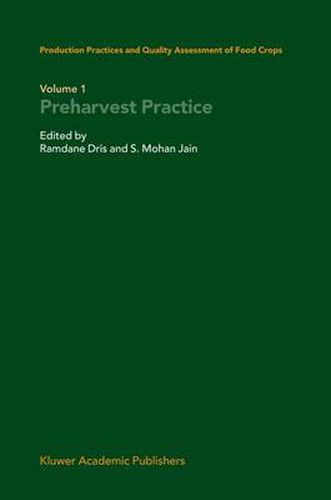Readings Newsletter
Become a Readings Member to make your shopping experience even easier.
Sign in or sign up for free!
You’re not far away from qualifying for FREE standard shipping within Australia
You’ve qualified for FREE standard shipping within Australia
The cart is loading…






This title is printed to order. This book may have been self-published. If so, we cannot guarantee the quality of the content. In the main most books will have gone through the editing process however some may not. We therefore suggest that you be aware of this before ordering this book. If in doubt check either the author or publisher’s details as we are unable to accept any returns unless they are faulty. Please contact us if you have any questions.
Today, in a world with abundant food, more than 700 million people are chro- cally undernourished. Over the next 20 years, the world’s population will probably double. The global food supply would need to double or to triple for the larger population to be fed adequately. Agriculture is closely linked to environmental quality in a variety of ways, and the challenge of our generation is how to feed a growing planet while maintaining the integrity of our ecological life-support system. The responsibility of governments for ensuring food security will grow proportionately with the growth of populations, and governments bear a special responsibility for promoting agricultural inputs. Agriculture in the 21st century, will certainly focus increasingly on adapting modern technologies to local farming systems, needs and environments. Worldwide climatic changes have been raising concerns about potential changes to crop yields and production systems. Such concerns include the ability to acc- modate these uncertain effects in order to ensure an adequate food supply for an increasing population. What can be done concretely to use agriculture to address some of the fundamental issues of today’s world? We must recognize that agric- ture is part of the solution and not just a problem. Agricultural development is a key to social stability and equity in many parts of the world. It can help to al- viate the subtle and unspoken fears of modernization and the space of change if innovation is handled transparently.
$9.00 standard shipping within Australia
FREE standard shipping within Australia for orders over $100.00
Express & International shipping calculated at checkout
This title is printed to order. This book may have been self-published. If so, we cannot guarantee the quality of the content. In the main most books will have gone through the editing process however some may not. We therefore suggest that you be aware of this before ordering this book. If in doubt check either the author or publisher’s details as we are unable to accept any returns unless they are faulty. Please contact us if you have any questions.
Today, in a world with abundant food, more than 700 million people are chro- cally undernourished. Over the next 20 years, the world’s population will probably double. The global food supply would need to double or to triple for the larger population to be fed adequately. Agriculture is closely linked to environmental quality in a variety of ways, and the challenge of our generation is how to feed a growing planet while maintaining the integrity of our ecological life-support system. The responsibility of governments for ensuring food security will grow proportionately with the growth of populations, and governments bear a special responsibility for promoting agricultural inputs. Agriculture in the 21st century, will certainly focus increasingly on adapting modern technologies to local farming systems, needs and environments. Worldwide climatic changes have been raising concerns about potential changes to crop yields and production systems. Such concerns include the ability to acc- modate these uncertain effects in order to ensure an adequate food supply for an increasing population. What can be done concretely to use agriculture to address some of the fundamental issues of today’s world? We must recognize that agric- ture is part of the solution and not just a problem. Agricultural development is a key to social stability and equity in many parts of the world. It can help to al- viate the subtle and unspoken fears of modernization and the space of change if innovation is handled transparently.